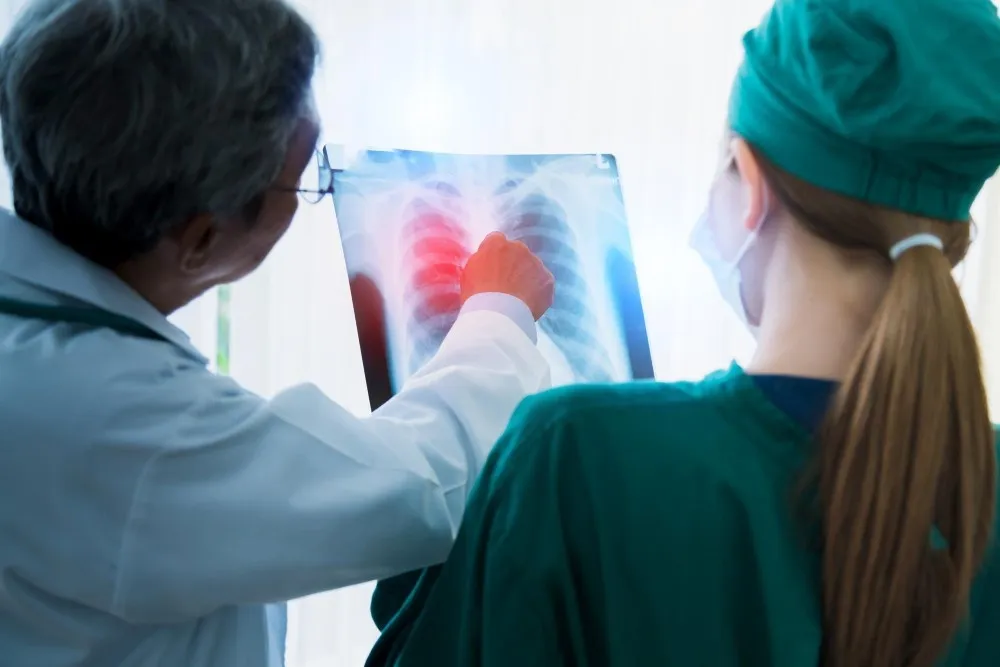Pulmonary medicine is a branch of medicine that deals with disorders and diseases that affect the lungs. The specialists that deal with pulmonary medicine can diagnose, manage and treat a wide range of pulmonary diseases that include lung diseases, pulmonary infections, and other breathing problems, along with disorders associated with blood vessels of the lungs.
Who is a pulmonologist?
A pulmonologist is a specialist of internal medicine who studies and treats respiratory diseases. Managing and treating chronic respiratory diseases is part of a pulmonologist's job, and is done through therapy that may include prescription of antibiotics, steroids or other medicine, delivered in the pill form, injection or inhaler.
A huge part of managing chronic respiratory disorders includes making lifestyle changes and adopting other coping mechanisms to keep symptoms under control and reduce the dependency on medication - a pulmonologist also guides patients through the process of managing a respiratory illness while offering some palliative care (oxygen and breathing machines) to patients in advanced stages of their disease.
When should you visit a pulmonologist?
Below is a list of diseases that require the attention of a lung specialist:
#1 Chronic Obstructive Pulmonary Disease (COPD)
COPD is a common lung condition that alters lung's structure and obstructs flow of air in and out of the body, making it difficult to breathe easily. It most commonly afflicts long-term smokers. Chronic bronchitis and emphysema are two conditions that lead up to COPD.
#2 Chronic cough
Most respiratory infections are accompanied by cough, which may be acute. However, this cough usually resolved with treatment of the infection. However, any unexplained cough that lasts for more than three weeks should be shown to a pulmonologist.
#3 Asthma
Asthma is a common respiratory disorder affecting mostly children but also adults. Shortness of breath, wheezing, cough and tightness in the chest result when lung airways become inflamed and their muscles spasm. This must be consulted with a respiratory specialist, as it can be of serious concern.
#4 Lung cancer
Lung cancer is a common cancer type that is very difficult to diagnose in its early stages. Seemingly innocuous symptoms like trouble breathing, chronic cough, etc. should not be overlooked and they must have it checked by a doctor.
Other conditions - Other conditions that are treated by a pulmonologist include:
- Cystic fibrosis
- Emphysema
- Blood in cough
- ARDS (acute respiratory distress syndrome) bronchitis
- Pulmonary embolism
- Pneumonia
- Tuberculosis
- Obstructive sleep apnoea
- Excess fluid in the lungs (Pleural effusion)
- Pulmonary hypertension
What to expect from the doctor's visit
The first visit to a pulmonologist will involve establishing a medical history of any previous respiratory dysfunctions. The doctor will also conduct a physical exam to check the breathing pattern and state of airways and lungs. If s/he suspects a pulmonary disease, diagnostic tests will be ordered to identify the exact cause of symptoms. The lung clinic a patient visits may also include a management programme to help cope with the daily symptoms of a chronic condition and lead a normal life.
Looking for a top notch pulmonologist near you? Click here to book your appointment.
Sources:
Image courtesy of [hin255] at FreeDigitalPhotos.net"Pulmonary Medicine," UCHC.edu, https://uchc.edu/patients/services/pulmonary/index.html"What Is a Pulmonologist/Pulmonary Specialist?" HealthCommunities.com, https://www.healthcommunities.com/copd/what-is-pulmonary-specialist.shtml
Reviewed by







